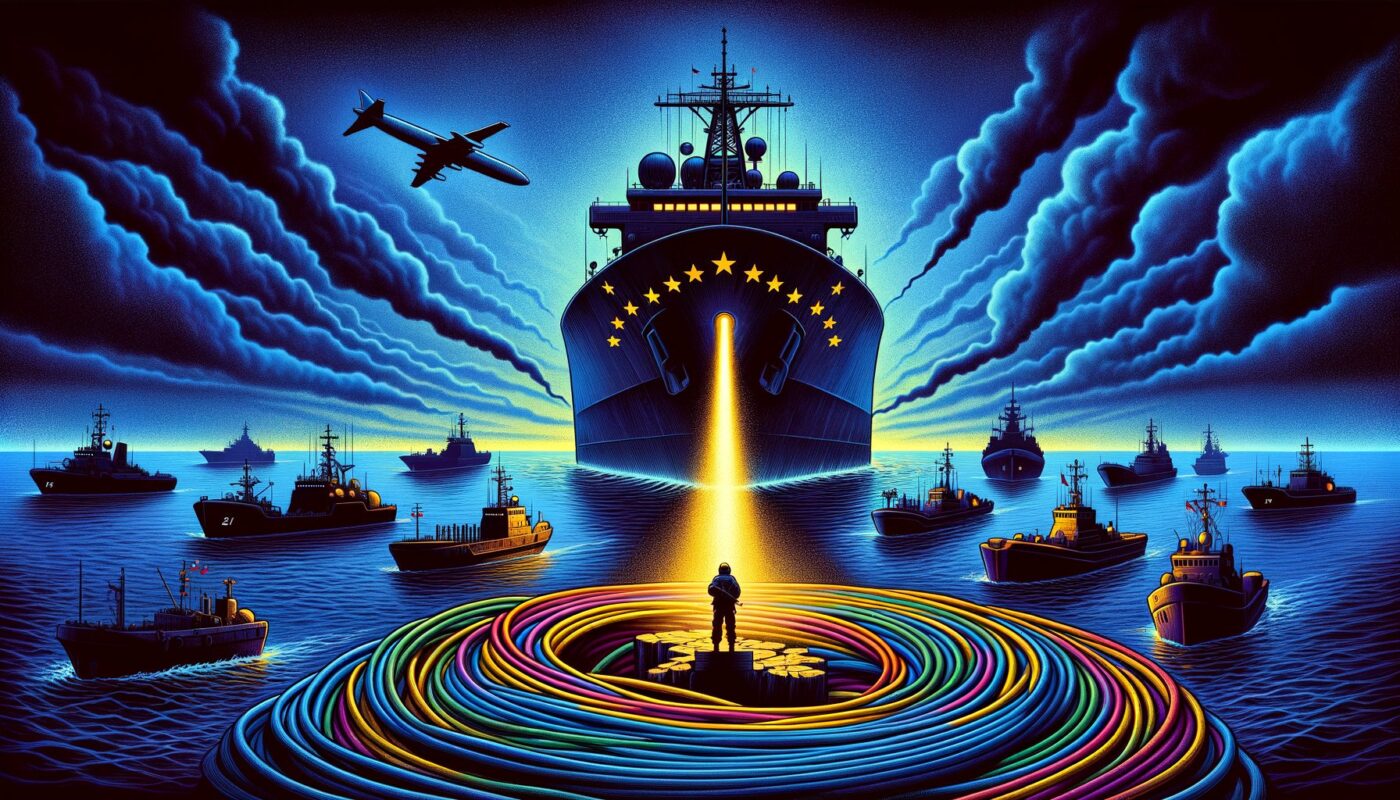The European Union is gearing up to impose sanctions on Russia’s elusive ‘shadow fleet’ following a series of troubling incidents, including the damaging of an undersea power cable in the Baltic Sea. This move aims to counter perceived threats to critical infrastructure in the region, which have been increasingly tied to Russia’s maritime activities.
Background of the Baltic Sea Incidents
Tensions have been escalating in the Baltic Sea since 2022, with multiple instances of undersea cables and gas pipelines being compromised. The recent damage to the Estlink-2 power cable that carries electricity from Finland to Estonia has heightened the EU’s vigilance. Finnish and Estonian authorities are on high alert, particularly after Finnish police detained the Russian ship Eagle S as part of the ongoing investigation. According to officials, the vessel, flagged in the Cook Islands, is part of the shadow fleet suspected of evading Western sanctions through clandestine operations.
You may be interested in this related article on how security concerns have been impacting infrastructure regions, like in South Korea’s expanding crypto market, which illustrates the broader scope of risks facing economic stability.
EU’s Strategic Response
The EU, through a statement shared by Foreign Policy Chief Kaja Kallas, has committed to strengthening protections for undersea cables. She emphasized that despite the recent incident, there is no immediate risk to regional electricity supplies. Kallas further noted that the suspected Russian vessel poses a dual threat to both security and environmental standards across European waters.
Prime Minister Kristen Michal of Estonia underlined the importance of international cooperation, saying, “We need to improve the monitoring and protection of critical infrastructure both on land and at sea.” Estonia is also collaborating closely with NATO allies to devise more comprehensive security measures.
For more insights into how countries are addressing similar challenges, read about how China’s strategic moves in the satellite industry could affect global infrastructure dynamics in China’s Bold Satellite Ambitions.
Environmental and Economic Considerations
Beyond the immediate security implications, the shadow fleet’s aging and poorly insured vessels raise significant environmental concerns. These ships are seen as potential hazards, likely to cause environmental degradation in the event of an accident. Moreover, through these operations, Russia potentially bolsters its war budget, further complicating the geopolitical landscape.
The Finnish Border Guard’s actions and subsequent investigation into the Eagle S anchor suggest that damage to the Baltic Sea cables may be linked to such operations. Alarmingly, repairs to the damaged cable could extend up to seven months, indicating significant downtimes and economic repercussions for affected nations.
For a broader understanding of geopolitical tensions and economic strategies, it may be worth exploring how this reflects on global policy shifts as discussed in our piece on Supreme Court Hearing on TikTok Ban.
In conclusion, the EU’s decision to sanction Russia’s ‘shadow fleet’ signifies a decisive action to enhance the security of critical marine infrastructures. As these developments unfold, the international community remains watchful, recognizing the intricate balance between environmental concerns, economic repercussions, and geopolitical strategies. By addressing the growing threats in the Baltic Sea, the EU aims to ensure the stability and security of the region’s vital infrastructure. For more detailed information on these developments, refer to the comprehensive coverage by Euronews.
Warning : This information is indicative and without guarantee of accuracy. Consult a professional before making any decision.





